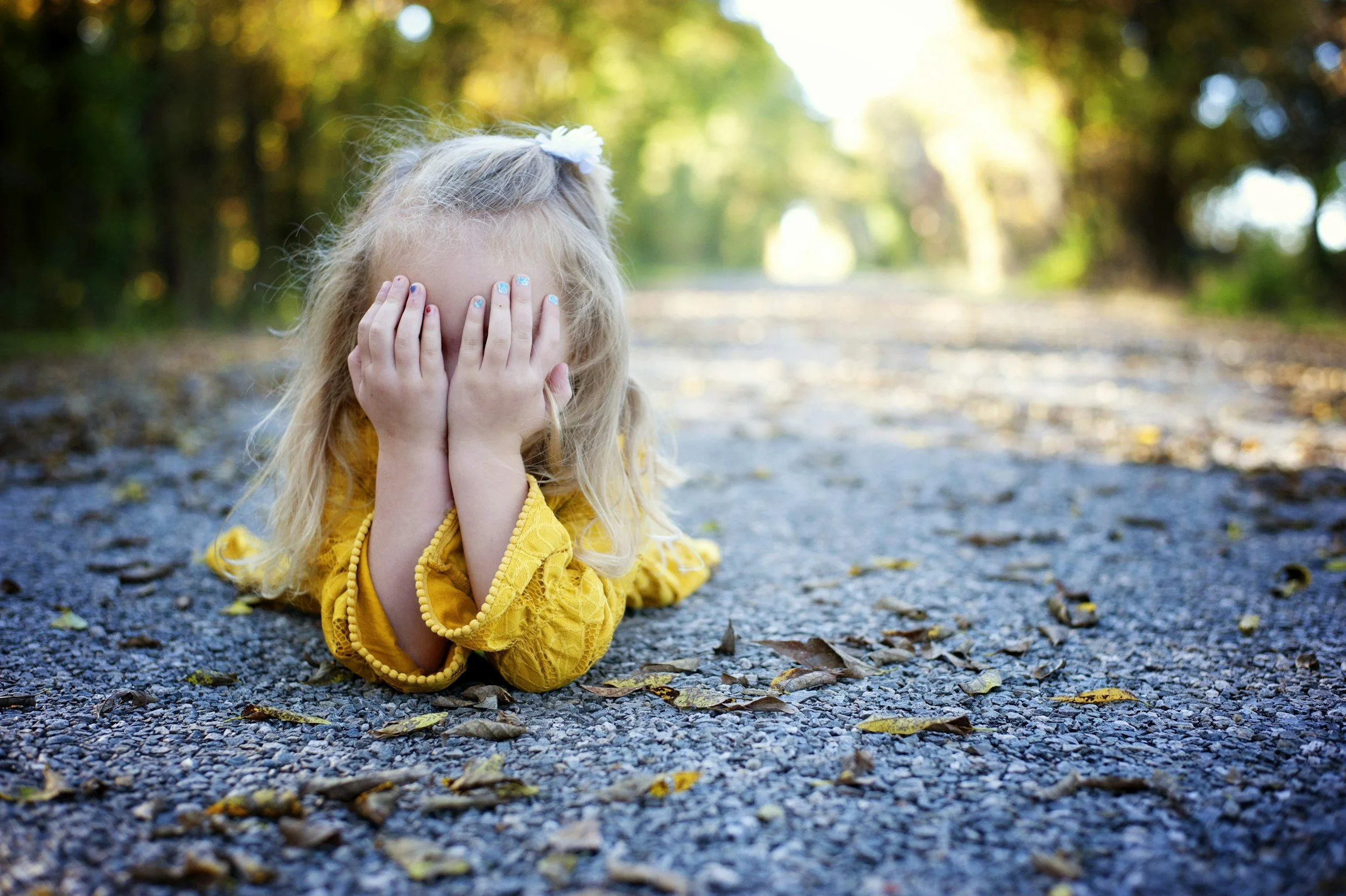When Worry Takes Over
Recognizing and Treating Child Anxiety
As a child therapist in private practice, I meet many families who are navigating something that feels invisible but deeply powerful: childhood anxiety. Kids don’t always have the words to tell us they’re feeling overwhelmed, and their anxiety doesn’t always look like we expect it to. Sometimes it’s meltdowns at drop-off. Sometimes it’s tummy aches or asking the same question over and over. And sometimes it’s just a quiet sadness that lingers.
Anxiety is one of the most common mental health challenges kids face. According to the CDC, nearly 10% of children between the ages of 3 and 17 have been diagnosed with anxiety. That doesn’t even account for the many others who go undiagnosed but still struggle to manage daily worries. The good news is that with the right support, kids can learn tools to navigate their anxiety and feel more confident in themselves and their world.
What Anxiety Can Look Like in Kids
Not all anxious kids act the same way. Some show classic signs of fear and worry, while others might appear irritable, restless, or even angry. You might notice:
Trouble sleeping or frequent nightmares
Physical complaints like stomachaches or headaches
Avoidance of school, social situations, or new experiences
Constant need for reassurance
Difficulty concentrating
Tearfulness or emotional outbursts over small things
In younger children, anxiety can also show up as clinginess, refusal to separate from caregivers, or difficulty with transitions. In teens, it may look more like perfectionism, withdrawal, or mood changes.
If your child’s anxiety is interfering with their ability to function at home, school, or with peers, it’s a sign that extra support could be helpful.
Why Do Some Kids Get Anxious?
Anxiety is a natural part of human development. In fact, it can be protective, helping us stay alert and safe in uncertain situations. But for some children, their brain stays on high alert even when there’s no danger. This can be influenced by a mix of genetics, temperament, and life experiences.
Things like moving to a new school, family conflict, exposure to trauma, or even just growing up in a fast-paced, high-pressure culture can increase a child’s anxiety. According to Yale Medicine, even children who are deeply loved and well-supported can struggle with anxiety. It’s not a reflection of parenting. It’s a signal that your child might need some extra tools.
What Parents Can Do to Help
As a child anxiety therapist, I often remind parents that how we respond to our child’s anxiety matters more than whether we can take the anxiety away. Here are a few ways to help:
1. Validate Their Feelings
Let your child know it’s okay to feel worried. Phrases like “That sounds really hard” or “I hear you” go a long way. Avoid telling them to “just calm down” or “stop worrying.” Even if it’s well-intentioned, it can make them feel dismissed.
2. Practice Coping Skills Together
Deep breathing, progressive muscle relaxation, and grounding exercises are great tools for kids. Practice them when your child is not in crisis, so they feel more familiar during moments of distress.
3. Create Predictability
Routines can help anxious kids feel more in control. Visual schedules, calm morning routines, and consistent bedtimes all create a sense of safety.
4. Teach Them to Face, Not Avoid, Fears
One of the biggest mistakes we make is protecting our kids from everything that makes them anxious. Avoidance feels better in the short term, but it reinforces anxiety in the long run. Instead, support them in facing fears gradually with encouragement and scaffolding.
5. Watch Your Own Anxiety
Kids are incredibly attuned to their caregivers’ emotions. If you struggle with anxiety yourself, consider seeking support. Modeling how to manage stress teaches your child by example.
When to Consider Therapy
If anxiety is interfering with your child’s ability to enjoy life, whether it’s school avoidance, changes in sleep or appetite, or ongoing distress, it might be time to reach out for help. Therapy can offer a child a safe space to explore their fears and build confidence. As a child anxiety therapist based on the Central Coast, I often use play therapy, cognitive behavioral techniques, and family support to help children and parents feel more connected and equipped.
Early support can help prevent anxiety from becoming more deeply ingrained and gives your child tools they can use for a lifetime.
Final Thoughts
All kids worry sometimes. But if those worries start to take over their daily life, there are ways to help. You don’t have to figure it out alone. Whether it’s learning to recognize signs of anxiety, trying new coping skills, or working with a child therapist, support is out there and it can make a big difference.
If you’re looking for a play therapist or child anxiety therapist in San Luis Obispo or the surrounding Central Coast, I’d be honored to be part of your child’s support team.
References
Centers for Disease Control and Prevention. (2023). About anxiety and depression in children. https://www.cdc.gov/children-mental-health/about/about-anxiety-and-depression-in-children.html
Child Mind Institute. (n.d.). What to do (and not do) when children are anxious. https://childmind.org/article/what-to-do-and-not-do-when-children-are-anxious/
Children’s Hospital of Boston. (n.d.). Anxiety disorders. https://www.childrenshospital.org/conditions/anxiety-disorders
Cleveland Clinic. (2023). Anxiety in children. https://my.clevelandclinic.org/health/diseases/9816-anxiety-in-children
Mayo Clinic Health System. (2021). 9 tools for helping your child manage anxiety. https://www.mayoclinichealthsystem.org/hometown-health/speaking-of-health/9-tools-for-helping-your-child-manage-anxiety
Mental Health Foundation. (n.d.). How to help an anxious child. https://www.mentalhealth.org.uk/explore-mental-health/publications/anxious-child
National Library of Medicine. (2004). A meta-analysis of the treatment of child and adolescent anxiety disorders. https://www.ncbi.nlm.nih.gov/pmc/articles/PMC1071700/
Yale Medicine. (n.d.). Childhood stress and anxiety. https://www.yalemedicine.org/conditions/childhood-stress-and-anxiety
